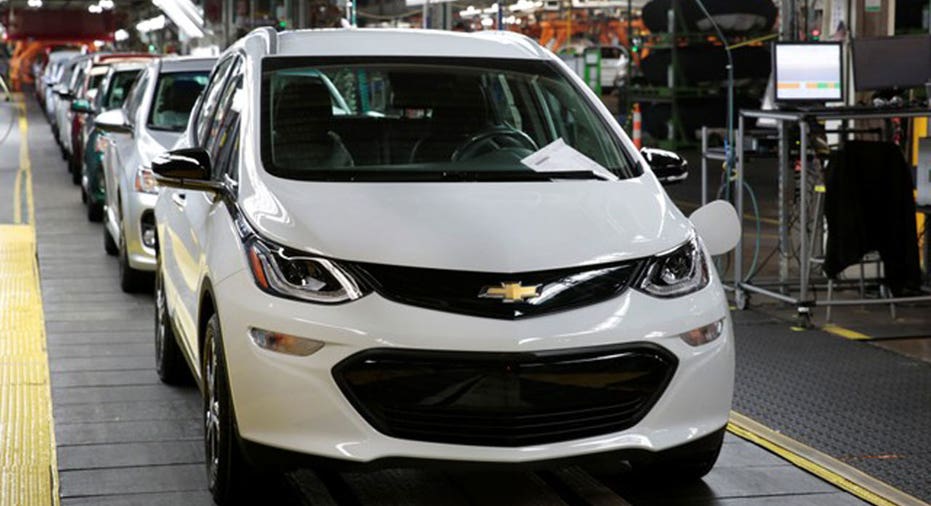GM bets on 3D printers for cheaper and lighter car parts

(REUTERS/Rebecca Cook)
General Motors said on Thursday it was working with design software company Autodesk to manufacture new, lightweight 3D-printed parts that could help the automaker meet its goals to add alternative-fuel vehicles to its product lineup.
Last year, the company announced ambitious plans to add 20 new electric battery and fuel cell vehicles to its global lineup by 2023. Chief Executive Mary Barra has made a bold promise to investors that the Detroit automaker will make money selling electric cars by 2021.
The ability to print lightweight parts could be a game changer for the electric vehicle industry. With consumer concerns over the limited range of electric vehicles a major obstacle to their mass adoption, making them lighter improves fuel efficiency and could help extend that range.
GM executives this week showed off a 3D-printed stainless steel seat bracket developed with Autodesk technology - which uses cloud computing and artificial intelligence-based algorithms to rapidly explore multiple permutations of a part design.
Using conventional technology, the part would require eight components and several suppliers. With this new system, the seat bracket consists of one part - which looks like a mix between abstract art and science fiction movie - that is 40 percent lighter and 20 percent stronger.
Other manufacturers such as General Electric have also beefed up their use of 3D printers in manufacturing. GM rival automaker Ford Motor Co said last year it was testing lightweight 3D printing for mass production.
GM has used 3D printers for prototyping for years, but Kevin Quinn, the automaker's director of additive design and manufacturing, said within a year or so GM expects these new 3D-printed parts to appear in high-end, motorsports applications. Within five years, GM hopes to produce thousands or tens of thousands of parts at scale as the technology improves, Quinn said.
"That is our panacea," Quinn said. "That's what we want to get to."
In the long run, Quinn said the 3D printed parts would help reduce tooling costs, cut the amount of material used, the number of suppliers needed for one part and logistics costs.
The 3D-printing based manufacturing industry is working toward mass production and trying to address issues with "repeatability and robustness," said Bob Yancey, Autodesk's director of manufacturing.
GM getting into the game "will put tremendous pressure" to make that happen, Yancey said.
(Reporting By Nick Carey, Editing by Rosalba O'Brien)



















